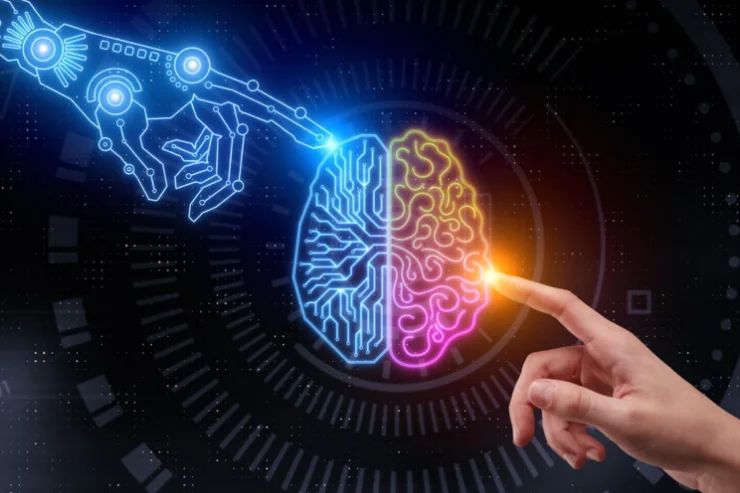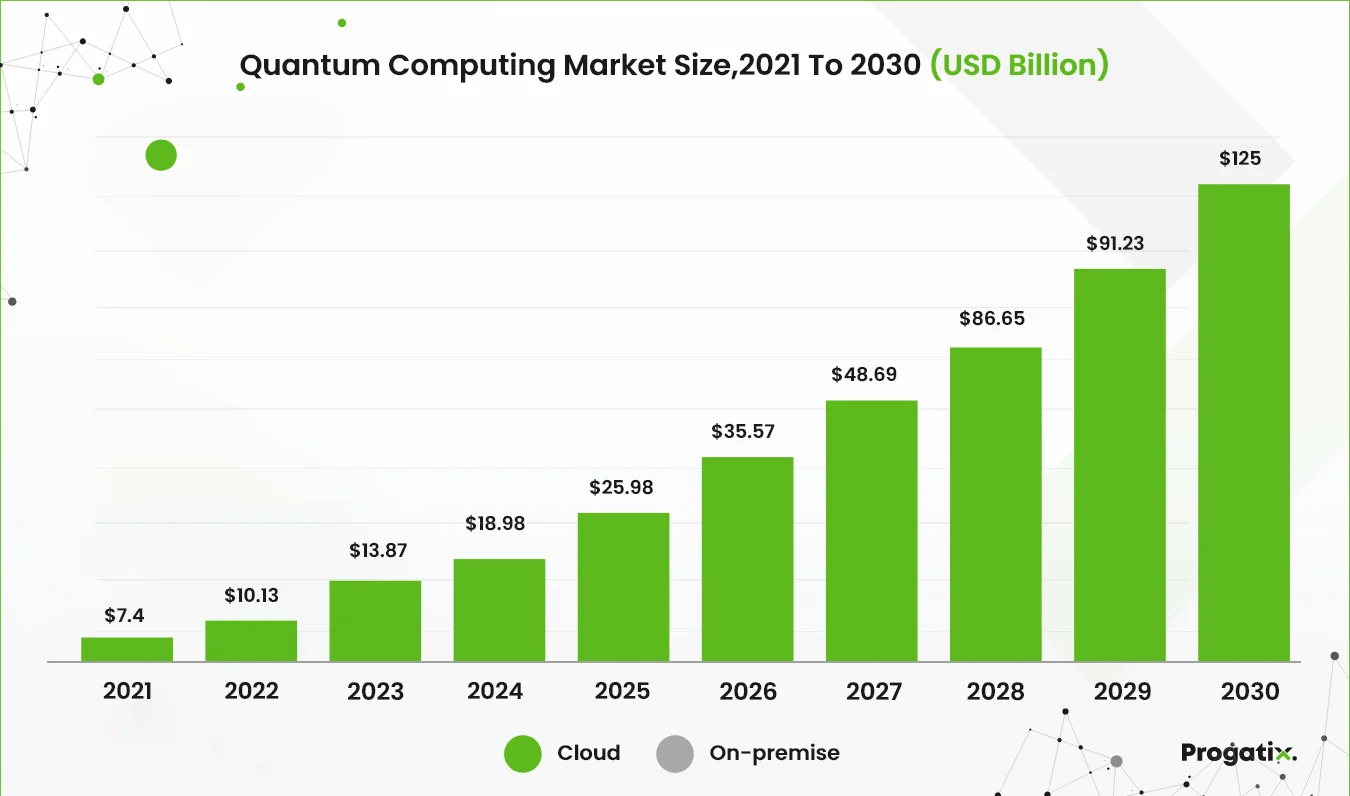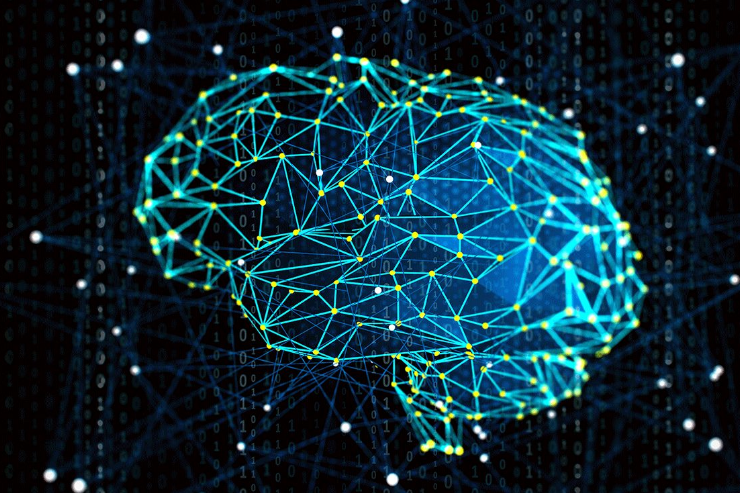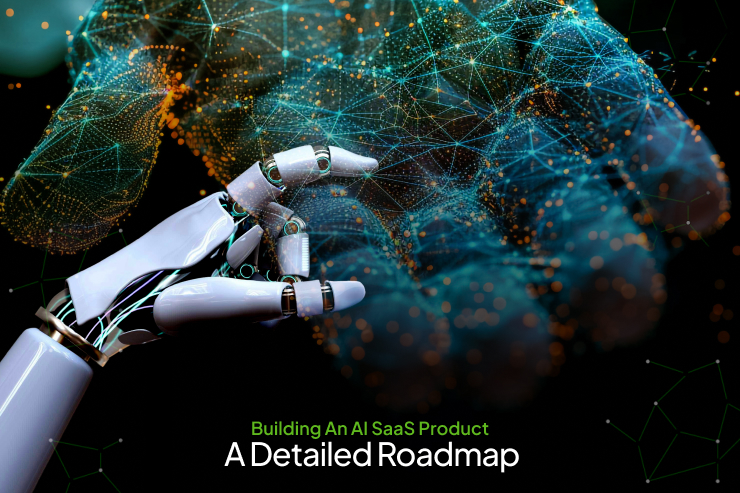Impact of Quantum Computing On AI Applications Software Development

Artificial intelligence has proved its significant role and place in the present sci-fi realm, and its applications are experiencing a rise. With quantum computing, AI applications have eventually become applied and valuable. In this article, we will look at the inferences of quantum computing on AI intelligence applications and explore how quantum computing will impact current AI applications.
On the other hand, AI, with its wide use in every area, is presently leading the technological stack; however, it is because of the limitations classical computers have. AI also has limitations outside which it cannot function due to its limited amount of computational power. The progressions in quantum computing hold the possibility of suggestive enhancement in machine learning and AI performance. In the meantime, the quantum computing scope will be examined for its effect on AI and its implications for numerous sectors such as industry, business, industry, and the economy.
The quantum computer’s processing speed exceeds classic computers by millions of times. The exhibited global quantum computing market size was at USD 10.13 billion in 2022, projected to exceed around USD 125 billion by 2030. The quantum computing tools development is itself a competitive exertion, with industry leviathans such as Google, Microsoft, and Intel striving for the lead. These facts from the business insider make us certain of a bright computing future.
Source: precedenceresearch
Overview Of Quantum Computing’s Effect On Artificial Intelligence Applications
Quantum computing, operating non-linearly and outperforming, is a revolution in the traditional computing realm, holding the potential to transform numerous industries through utilizing the most hyped technology of the present day and probably holding the bright future artificial intelligence (AI) and its remarkable problem-solving competencies. AI systems can greatly be influenced through authority, user-friendliness, improved speed, efficiency, and accuracy by quantum computers.
What Is Quantum Computing?
Quantum computers differ from classical computers due to their use of quantum bits or qubits in a way that classical computers can merely represent two states, on or off; however, quantum computers can have several qubits, allowing them to signify an array of probable values instantaneously which let quantum computers solve difficulties much quicker in comparison to the classical computers.
Some applications that could be enhanced with quantum computing include artificial intelligence and drug design. AI holds a competence to execute intricate tasks but to eradicate the difficulty of comprehending and intermingling with natural human beings. Quantum computing comes to aid by being more refined and interactive to be easily comprehensible for humans and in a more significant way.
Additionally, drug design also provides an area where benefits quantum computing can provide benefits by finding fragments or particles to successfully treat fatal diseases just by knowing how many atoms are required for a particle to work efficiently. Quantum computing can easily solve problems due to the ability of qubits to store more information than a classical computer.
Difference Between Quantum Computing and Classical Computing
The key and primary difference between classical and quantum computing is the practice of using qubits in the place of 0s and 1s in conventional computers, as qubits can illustrate 0s and 1s and can execute several calculations concurrently. Furthermore, quantum computers are more consistent for complex applications such as AI because qubits do not demonstrate the same blunders as classical computers, consequently being well suited for artificial intelligence applications.
By augmenting the classical computing aptitudes, quantum computing provisions and improves them, and through specialized functions of system boosts, quantum computers are anticipated to complement, not exchange, classical computers. Therefore, they provide developers with an innovative tool specifically for the applications that perform tasks more proficiently and precisely in comparison to classical computers.
How Can Quantum Computing Change Artificial Intelligence Applications?
Quantum computing holds the potential to considerably alter the way artificial intelligence (AI) applications are utilized. Quantum computers can do things that regular computer systems can’t, like solving certain problems in near-prompt timeframes, further leading to significant progressions in AI applications, including highly accurate predictions and faster decision-making. Quantum computing also holds the competencies to aid in reducing data processing times and increasing accuracy while using AI algorithms.
Begin Quantum Computing With Our AI Applications Swiftly!
Let's Connect
Impact Of Quantum Computing On Artificial Intelligence
There are multiple use cases of quantum computing across industries that have assisted in solving intricate problems. A few of such use cases are:
Traffic management
Let’s suppose there is an ambulance running through rush-hour traffic, carrying a critically ill patient, and every fleeting moment is of extreme importance. The driver immediately needs to recognize the least jammed routes for an immediate and well-organized journey. And here comes the part of quantum computing. Conventional computers, on the one hand, examine road conditions chronologically; quantum computing, on the other hand, retains the outstanding capability to consecutively estimate all possible routes, allowing it to quickly regulate an ideal recommendation.
Medical Care
When it comes to treating a critically ill patient with multifaceted conditions, hospitals frequently organize a medical board including professionals from various fields. These specialists cooperate and work together to discover diverse treatment options and find the most effective solution; however, this approach can be gradual and hold back the decision-making process. Quantum computing, instead, holds the potential to revolutionize this process.
By keying countless likelihoods into a quantum computing system and providing it with historical data corresponding to similar medical conditions, quantum computing can promptly estimate the possible usefulness of each approach and offer the best and most effective propositions. Further, this quantum computing benefit allows healthcare professionals to achieve valuable insights in a considerably smaller time frame.
Machine Learning
Quantum computing can help provide an ideal stage for machine learning by transferring the right data quicker by making computers learn from data and enabling them to form or comprehend patterns, similarly to the human brain. However, in most cases, machine learning might be inhibited by the poor-quality data and the slowly accessible data. Here comes quantum computing for hypothetically computing massive volumes of data rapidly, along with offering the same to machine learning.
Cryptography & security
Cryptography and security involve data security from unauthorized access, and Quantum computing can theoretically take cryptography and security to another level where unlicensed or illegal data access becomes much more difficult than earlier. Still, there are two ways to view the quantum computing role in cryptography and security. One view is that quantum computing can use qubits for calculating all the possible ways of data breaching attempts while providing applicable data revitalizing the information. But the other view is that quantum computing can also be counterproductive or ineffectual due to providing hackers a small window of quickly calculating the several likely ways of breaching a server comprising extremely confidential data.
Machine Learning Algorithm Enhancement
Machine learning algorithms data allows AI systems to learn along with generating intelligent forecasts. The use of quantum computing holds the potential to improve these methods by permitting rapid optimization and search measures. Especially in arrangement and regression, quantum algorithms, including Quantum Neural Networks (QNN) and Quantum Support Vector Machines (QSVM), have shown promise. Moreover, quantum computers execute recognizing patterns and process data better because they hold larger datasets.
Identifying & Solving Complex problems
Quantum computing can solve intricate problems even past the reach of traditional and outdated computers by synchronously handling large volumes of information. Quantum computers hold the potential to mimic large-scale quantum systems to comprehend molecular interactions and drug discovery, along with handling epidemically complex optimization concerns such as resource scheduling and allocation. Finally, with the quantum algorithm’s use, AI systems can resolve real-world complications more effectively.
Advancing Natural Language Processing
One of the significant parts of AI is natural language processing (NLP), which allows machines to decode and produce human language along with improving language translation accuracy, semantic understanding, and sentiment analysis. Quantum computing has the potential to advance overall NLP activities, work with large datasets, and apprehend intricate linguistic links, improving the entire language processing. Moreover, the NLP development remunerates applications like virtual assistants, chatbots, and automatic language translations.
Source: yandex
Criticism Related To Quantum Computing’s Effect On AI
However, quantum computing’s advantages are numerous, but still, there are a few drawbacks. It doesn’t mean that it’s a bad idea to implement quantum computing, but it’s just worth first recognizing the hyped narrative or the substantial narrative. The following are some of the points providing a reality check regarding the hype revolving around quantum computing.
Quantum computing is costly and, so far, beyond the range of organizations holding no big and persistent budgets for it due to its similarity with the gigantic, expensive, and required maintenance computers. Therefore, not every organization can have that.
Quantum computing might be more operative than regular computing, but it’s immensely sensitive to sound or data that can be acquired through accurate data in an acceptable format. Otherwise, it will produce errors. Error correction has been one of the major challenges with quantum computing because the errors it generates are an outcome of failed noise processing and are exceptionally complex and time-consuming to correct.
Concerns around quantum computing misuse are massive. For all its boundaries, quantum computing can bang open the harshest encryptions. Think of it as catastrophizing concerns when hackers with malevolent purposes utilize quantum computing. Countries, on the other hand, have been demanding to obtain a first-mover benefit in regard to that. According to Techopedia, US President Joe Biden contracted the Quantum Computing Cybersecurity Preparedness Act to allow the Office of Management and Budget (OMB) to implement quantum computing. But again, it’s impossible for all the countries to consistently perform it, and this disproportion then creates a problem among nations.
How Businesses Can Prepare Themselves For Quantum Computing’s Influence On Their AI Applications?
As you know, quantum computing is different than traditional computing specifically due to its use of qubits’ mechanical systems, which help complete calculations much quicker than traditional computers. Therefore, it increases the probability of potential revolution in several industries, including artificial intelligence (AI).
Quantum computers can strengthen AI applications to resolve problems much faster, allow them to acquire and progress more quickly, and make them better at identifying patterns or objects in images. Additionally, quantum computers can be used in creating new AI applications and new algorithms.
Several businesses have already started preparing for the quantum computing influence on their AI applications. For instance, Google has included a built-in quantum computer within its search engine. On the other hand, IBM is also planning to use quantum computing within its business resolutions division. Keep in mind these companies are operating to certify their products are well-matched with quantum computing and possess the substructure that can handle the improved demand.
With the increment in quantum computing usage these days, businesses must keep themselves prepared, develop new and technology-compatible software and hardware solutions, and invest in research and development (R&D) to stay ahead of the curve and keep going in the competitive market. Get Your Custom AI Applications Fast. Stay One Step Ahead With Our Professional Developer’s Team!




 Let's Discuss Your Tech Solutions
Let's Discuss Your Tech Solutions 






